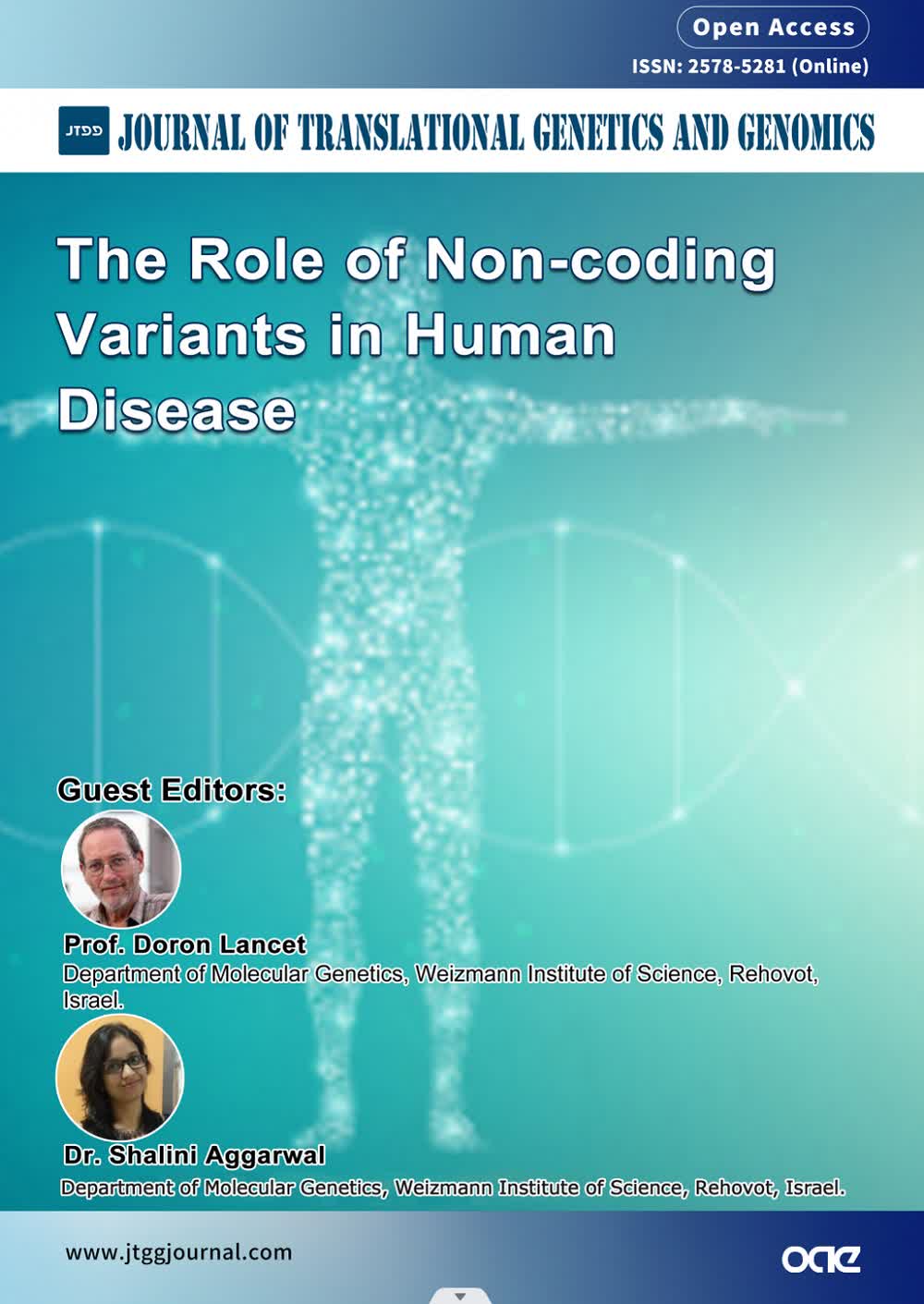
Topic: The Role of Non-coding Variants in Human Disease
A Special Topic of Journal of Translational Genetics and Genomics
ISSN 2578-5281 (Online)
Submission deadline: 31 May 2023
Guest Editors
Prof. Doron Lancet
Department of Molecular Genetics, Weizmann Institute of Science, Rehovot, Israel.
Special Topic Introduction
Since the completion of the Human Genome Project, thousands of GWAS studies have revealed that 90% of the common genetic variants associated with specific traits or diseases are located in non-coding regions. It is difficult to find the target genes of non-coding regions because of the characteristics of linkage inheritance and long-distance interaction. Moreover, these genes are so dynamic that it is hard to know in which organization they work. After the completion of the Human Genome Project, many large-scale studies on regulatory genomes have been carried out gradually, and many authoritative papers have published a series of available databases, which help experts to explore the function of non-coding DNA. At the same time, non-coding region variation pathogenicity prediction software has been more widely spread and used to assess the pathogenicity of genetic variants. Combined with the application of artificial intelligence, deep learning algorithms have also played an increasingly extensive role in the annotation database of non-coding regions of the human genome and the prediction of variant pathogenicity. Therefore, JTGG plans to launch a Special Issue "The Role of Non-coding Variants in Human Disease" that discusses, but is not limited to, the following topics:
1. Non-coding variants GWAS;
2. Non-coding variants cis-regulation;
3. Non-coding variants in human disease/rare disease;
4. Non-coding variants whole genome sequencing;
5. Non-coding variants identification/predicting effects;
6. Pathogenic non-coding variants;
7. Non-coding variants transcription factors;
8. Non-coding variants prioritization;
9. Non-coding variants omics techniques;
10. Non-coding variants functional annotation;
11. Application of deep learning algorithms in non-coding regions of the human genome;
etc.
1. Non-coding variants GWAS;
2. Non-coding variants cis-regulation;
3. Non-coding variants in human disease/rare disease;
4. Non-coding variants whole genome sequencing;
5. Non-coding variants identification/predicting effects;
6. Pathogenic non-coding variants;
7. Non-coding variants transcription factors;
8. Non-coding variants prioritization;
9. Non-coding variants omics techniques;
10. Non-coding variants functional annotation;
11. Application of deep learning algorithms in non-coding regions of the human genome;
etc.
Submission Deadline
31 May 2023
Submission Information
For Author Instructions, please refer to https://www.oaepublish.com/jtgg/author_instructions
For Online Submission, please login at https://www.oaecenter.com/login?JournalId=jtgg&IssueId=jtgg2305311310
Submission Deadline: 31 May 2023
Contacts: Jixiang Zhao, Assistant Editor, [email protected]










